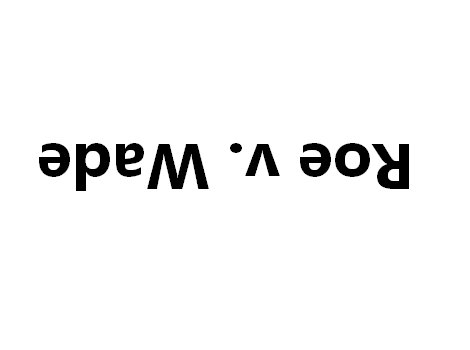In a legal victory that has much bigger implications than the case that came before it, the Alabama Supreme Court on Friday issued a ruling pro-life advocates are hailing calling for Roe v. Wade to be overturned.
The Alabama Supreme Court issued a unanimous ruling that a mother may pursue a wrongful death claim on behalf of her pre-viable unborn child.
In the case of Hamilton v. Scott, Amy Hamilton filed suit against several doctors and a medical group for the wrongful death of her unborn child, claiming that the lack of proper medical intervention resulted in the child’s death, which all the experts agreed was at the pre-viable stage of pregnancy and could not have survived if born at that stage of pregnancy.
Justice Tom Parker, joined by three other Justices, issued a special concurring opinion, in which he specifically addressed that Roe v. Wade does not prevent such a ruling and that viability is arbitrary and changes with medical technology. Parker wrote that Roe is out of step with every other area of law in which many state legislatures and courts have recognized the rights of the unborn child in wills and estates, tort or criminal law, and more.
 Parker also cites a prior ruling of the Alabama Supreme Court in Wolfe v. Isbell, 291 Ala. 327, 330-31, 280 So. 2d 758, 768 (1973), in which the court wrote “that from the moment of conception, the fetus or embryo is not a part of the mother, but rather has a separate existence within the body of the mother.”
Parker also cites a prior ruling of the Alabama Supreme Court in Wolfe v. Isbell, 291 Ala. 327, 330-31, 280 So. 2d 758, 768 (1973), in which the court wrote “that from the moment of conception, the fetus or embryo is not a part of the mother, but rather has a separate existence within the body of the mother.”
Parker also wrote that “Roe’s viability rule was based on inaccurate history and was mostly unsupported by legal precedent. Medical advances since Roe have conclusively demonstrated that an unborn child is a unique human being at every stage of development.”
“Since Roe was decided in 1973, advances in medical and scientific technology have greatly expanded our knowledge of prenatal life,” he said. “The development of ultrasound technology has enhanced medical and public understanding, allowing us to watch the growth and development of the unborn child in a way previous generations could never have imagined.”
“Similarly, advances in genetics and related fields make clear that a new and unique human being is formed at the moment of conception, when two cells, incapable of independent life, merge to form a single, individual human entity,” he added. “Of course, that new life is not yet mature – growth and development are necessary before that life can survive independently – but it is nonetheless human life. And here has been a broad legal consensus in America, even before Roe, that the life of a human being begins at conception.”
The concurrence continued, “An unborn child is a unique and individual human being from conception, and, therefore, he or she is entitled to the full protection of law at every stage of development.
He concluded: “Roe’s viability rule was based on inaccurate history and was mostly unsupported by legal precedent. Medical advances since Roe have conclusively demonstrated that an unborn child is a unique human being at every stage of development. And together, Alabama’s homicide statute, the decisions of this court, and the statutes and judicial decisions from other states make abundantly clear that the law is no longer, in Justice Blackmun’s words, ‘reluctant … to accord legal rights to the unborn..’
“For these reasons, Roe’s viability rule is neither controlling nor persuasive here and should be rejected by other states until the day it is overruled by the United States Supreme Court,” he said.
Mathew Staver, Founder and Chairman of Liberty Counsel, commented: “This decision by the Alabama Supreme Court is an example of a ruling consistent with legal precedent and logic. Recovery for wrongful death of an unborn child does not depend on an arbitrary line of viability, because that line is based solely on existing medical technology. From the moment of conception and at all stages of development in the womb, the unborn child is a human being. I applaud Justice Tom Parker’s clear and well-reasoned concurring opinion, which conclusively shows that Roe v. Wade’s viability rule does not apply, was based on flawed legal reasoning, and is undermined by advances in medical technology. The life expectancy of Roe is limited and is being undermined by every other area of law and medicine.”







